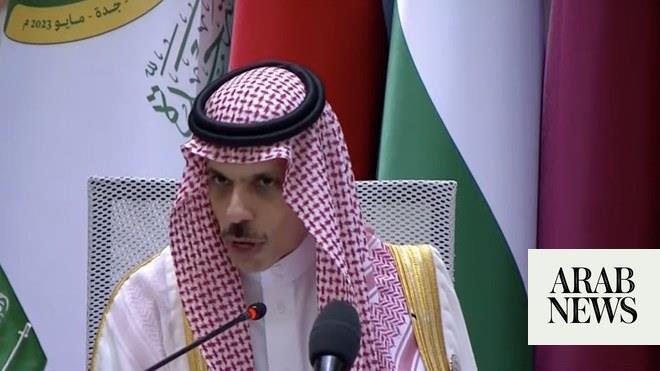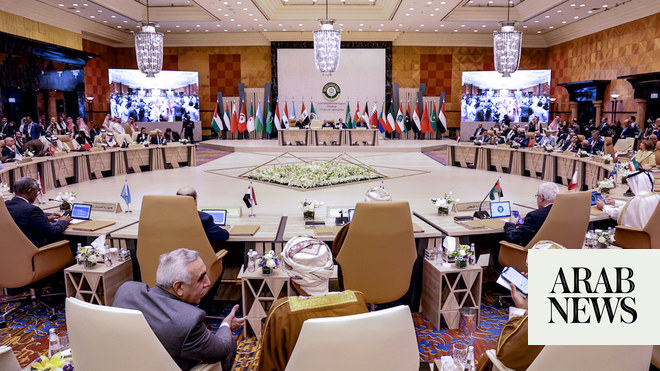
JEDDAH: Pakistan’s Federal Minister for Foreign Affairs Shah Mehmood Qureshi said on Wednesday that his country is willing to play a role to help resolve some of the region’s “long-standing issues” between Muslim countries.
Speaking exclusively to Arab News on the sidelines of the 14th Islamic Summit Conference in Makkah, Qureshi said: “Pakistan believes that this region is in flux. We have some very serious issues in the region. Our message is that we have to join hands; we have to understand each other’s concerns and have a collective objective of peace and stability so that our region can develop like other parts of the world.
“The point is that it is a concerted effort,” he continued. “How are we going to achieve what we want to achieve if we do not sit and resolve our issues through diplomatic means? We should keep on joining hands, as that is the only way forward.”
With around 5 million Pakistanis working in the Gulf, the region is of special interest to Islamabad, Qureshi pointed out. “We have excellent relations with all Gulf countries, historically and traditionally,” he said. “The Gulf is economically very important for Pakistan. The bulk of our energy requirements are being fulfilled from the Gulf.
“So, for Pakistan, peace within the GCC states is always advocated. And the issues within the Gulf need to be resolved through dialogue. You can agree to disagree, but you can reconnect to resolve,” he added.
Asked to comment on Iran’s role in the escalating tension in the Gulf, Qureshi said that any country isolating itself from the rest of the Muslim world “because of pursuing a particular policy” was going to suffer negative consequences. However, he added, “Iran is part of the region. It is a country that you have to live with. We share a border with them, so we recognize the challenges. But we have to see how those tensions can be defused and resolved.”
Qureshi met with Iran’s foreign minister, Mohammad Javad Zarif, in Islamabad last Friday to discuss rising tensions between Iran and the US. “My message to him was: Restraint, calm, and resolution of issues through diplomatic channels,” he said. “Conflict will not pay. It will only aggravate the situation. People want to see peace and stability in the entire region and we all have to play a responsible role.”
It is important, he said, for the Muslim world to improve its international image. “We have to eliminate terrorist elements, and we have to reverse extremism,” he said. “Why is the world looking at us in a particular way? And how can we get rid of that image to make the world look at us positively?”
Forums such as the Islamic Summit Conference and Arab League meetings provide vital opportunities to answer such questions, he suggested. “These meeting are very important,” he said. “And they will provide ample opportunity for all of us to achieve our goals.”
One particular goal on which Pakistan is currently focused is a resolution to “the Kashmir issue.”
“The situation (on the Indian side of Kashmir) has changed dramatically,” Qureshi said. “Today the world recognizes that Kashmiris — Kashmiris who were engaging with the union in India — are now distant from the center because the reality on the ground has changed.” A number of reports, from the UN, the UK and the EU, he said, “are all pointing in one direction.”
“People are being alienated, excessive use of force has taken place, human rights are being violated and people are being killed and maimed,” he explained. “Pellet guns are being used and horrific stories of killings and gang rapes have surfaced. The situation is explosive, and unless it is addressed, it could lead to new tensions within South Asia between two neighbors, and no one wants that; particularly the Gulf countries because any deterioration will affect the Gulf as well.
“We want to live in peace with India, but the issue of Kashmir has to be addressed,” he continued. “It cannot be ignored or overlooked.”












